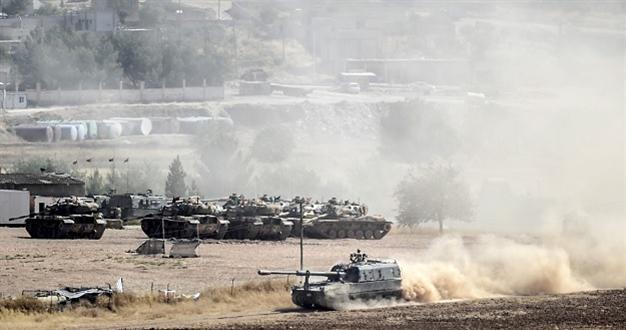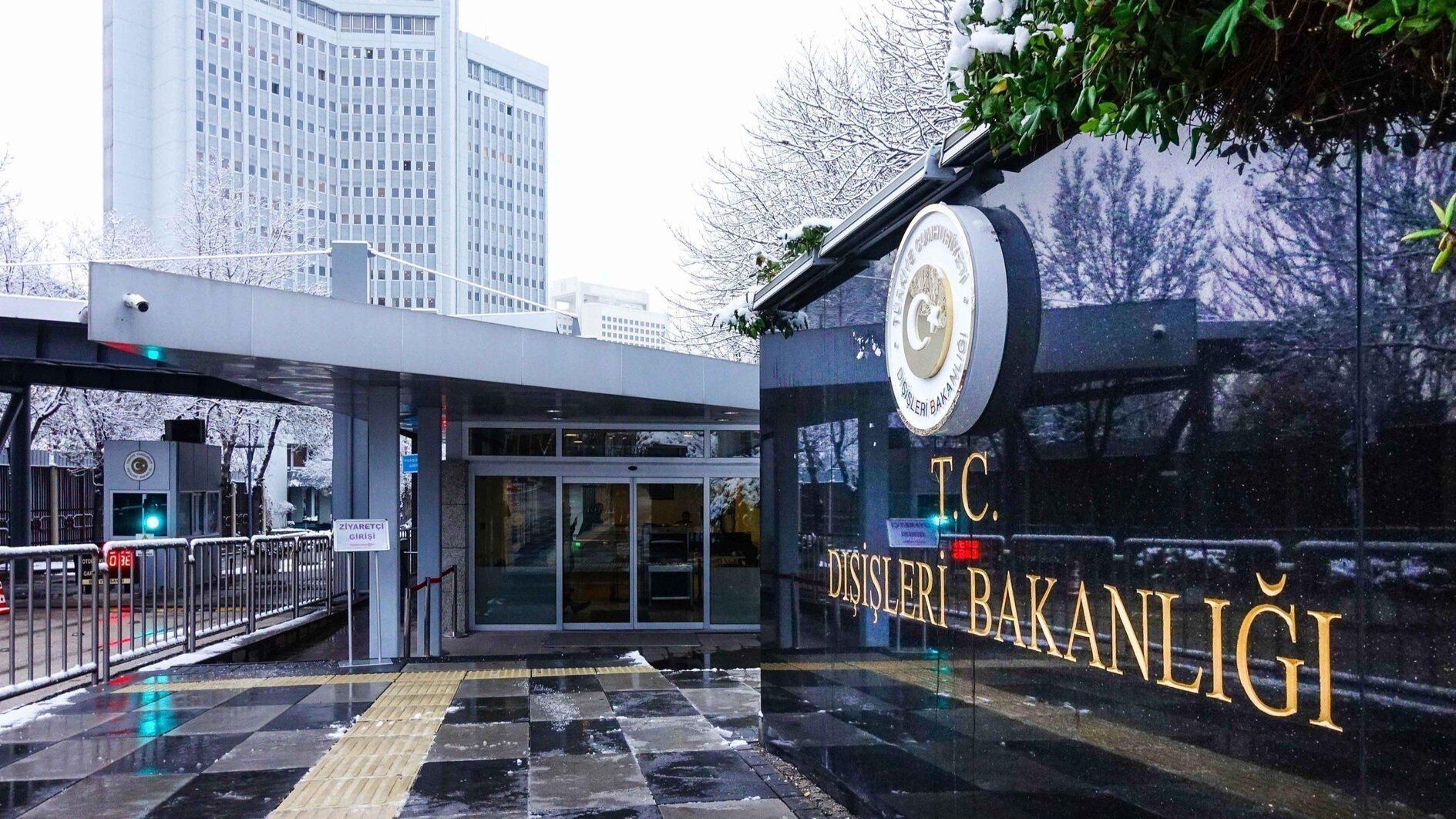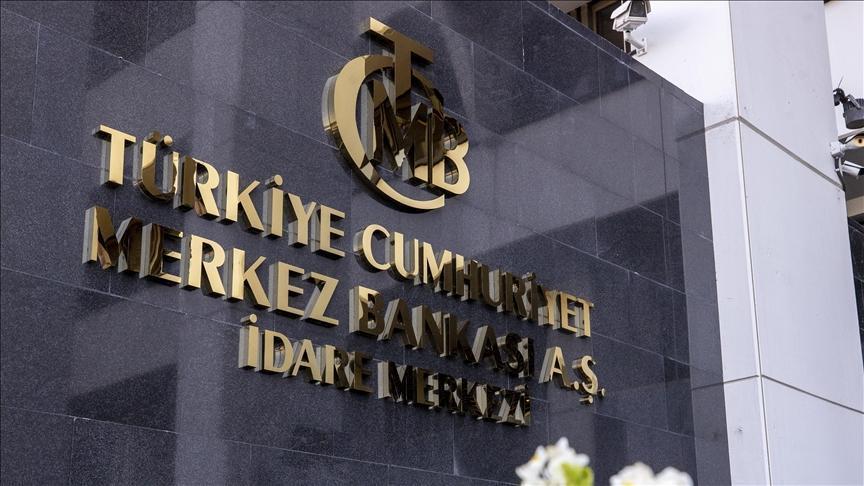Kurdish forces expel ISIL fighters from Syrian border town
SURUÇ - Reuters

Vehicles of the Turkish army move on a dirt road as the city of Kobane is pictured in the background on June 26, 2015 in Suruç, Turkey. AFP PHOTO / BULENT KILIC
Syrian Kurdish forces expelled Islamic State of Iraq and the Levant (ISIL) fighters from Syria's Kobane on June 27 and took back full control of the town on the Turkish border, the Syrian Observatory for Human Rights monitoring group said.There were still some clashes between the YPG and ISIL to the south of the town, the Observatory's founder Rami Abdulrahman said, hours after an explosion hit Kobane.
The cause of the explosion, which appeared to come from the centre of the town, was not immediately clear, said a Reuters cameraman who was near the town at the Turkish border.
Syrian Kurdish forces and the Syrian army fought separate battles with ISIL around Hasaka city in northeast Syria overnight as the hardline group tried to capture more areas of the major urban centre near the Iraqi border, a monitor said on June 27.
ISIL launched an assault on government-held areas of Hasaka early on June 25 and the United Nations says the violence is estimated to have displaced up to 120,000 people.
The Syrian Observatory for Human Rights, which tracks the conflict using sources on the ground, said the Kurdish YPG militia fought with ISIL fighters on the outskirts of the Ghwyran neighbourhood in Hasaka's southeast overnight.
Hasaka is divided into areas run separately by Syrian President Bashar al-Assad's government and Kurdish authorities and has a mixed population of Arabs, Kurds and Christians.
It is important to all sides fighting in an area that sits between ISIL-held territory in Syria and Iraq and which reaches north up to the Turkish border.
The YPG says it does not coordinate with the Syrian army and allied militia, which fought their own battles with ISIL in the southwestern neighbourhood of al-Nashwa and around a security building in the city, the Observatory said.
ISIL is back on the offensive after two weeks of defeats at the hands of Kurdish-led forces, supported by U.S.-led air strikes. This week the Kurds advanced to within 50 km (30 miles) of Raqqa city, the group's de facto capital.
ISIL also attacked the predominantly Kurdish town of Kobane on June 25, which lies to the northwest of Hasaka on the Turkish border. It is reported to have killed at least 145 people in and around Kobane in what the Observatory has described as one of the worst massacres carried out by ISIL in Syria.
The YPG has described the attack on Kobane as "a suicide mission" rather than an attempt to capture the town.
But in Hasaka it appears that ISIL is aiming to seize the city in a push which will test the Syrian army's capacity to hold on to areas far from the major government-held cities in the west.
Late on June 26 Information Minister Omran al-Zoubi appealed to residents to take up arms to defend Hasaka.
"I call on every man, every young woman and every young man able to carry weapons to move immediately and join the frontline positions to defend the city," he said on state television.
Earlier on June 26 Hasaka's governor had said the city was safe and secure and that people should return home.
While ISIL had managed to advance slightly in Hasaka on June 26, seizing one army position, heavy Syrian air force strikes had hindered the attack, according to the Observatory.
The U.N.'s Office for the Coordination of Humanitarian Affairs, citing government figures, said that since the attack on Hasaka started 120,000 people were estimated to have been displaced within the city and to surrounding villages, as well as to the northern districts of the province.
It said nearly 10,000 people who fled their homes had been located and registered so far.
















